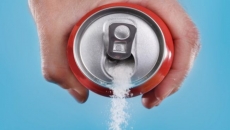Nature refreshes us, inspires and even heals us. We know that for a long time, humans have benefited from being around nature, enjoying the fresh air and majestic scenery of lush forests and bountiful rivers. Over the last decade, many of us have followed the global urban living trend, which means working from home and less time outdoors. However, spending time outdoors has various benefits for our brain, including improved attention, lower stress, better mood, reduced risk of mental illness and even increased empathy and cooperation.
Our connection with nature – how much we notice, think about and appreciate our natural surroundings – is critical in supporting good mental health and preventing distress. Being close to nature, whether hiking through a local park or simply admiring fresh-cut flowers on your kitchen table, can boost your mood and make you more alert and less anxious.
Being outside and spending the day at the beach or hiking your favourite trail is easy in the summer. However, many of us would prefer to be curled up on our couch with a hot chai, watching our favourite movie in the cold winter months. To help you get connected with nature in the winter, here are Shimi and Jas' favourite tips to get the mental health benefits without freezing your toes off:
1. Schedule short walks when the temperature is the highest.
If you are an early riser, you will love starting your day with a brisk morning walk. Dr. Kang says, "Walking outside improves one's mood just like light-box therapy is known to help people with mood disorders." It's very effective to be outside because our brains release powerful neurochemicals similar to those you may be trying to promote with medications.
2. Stay hydrated with a warm drink. We all have our favourite winter drinks, and Jas loves her masala chai, which is steeped with ginger, cardamom, cloves, and fennel seeds. If you need something to warm you up outdoors and make your walk a little more fun, take your drink with you.
3. Plant a winter garden…yes you can grow a garden in winter too! Giving yourself a project during winter is great motivation to spend some time outdoors. Kale, potatoes, onions and garlic can be planted and cultivated in winter. You can even reward yourself with some hot aloo paratha after you have harvested your crop.
4. Start a plant family! If you don't have that green thumb for outdoors, bring the greenery inside with some indoor plants to help liven up your home. For many people with mobility issues, having some indoor plants will be a great way to be close to nature and reduce psychological stress.
5. Bring the outdoors indoors by sitting on your patio or by a window. Even if you are inside, you can still enjoy the sight of beautiful white snow and listen to the pitter-patter of raindrops outside.
The bottom line? No matter your strategy, experiencing nature doesn't have to be a huge commitment. "It doesn't have to be complicated – go outside and observe the sights around you," says Dr. Kang. "Really make it a part of your life every day." We all need fresh air, and connecting with nature year-round is essential for our well-being.

Dr. Shimi Kang, psychiatrist and co-founder; Jas Hundal, Social Worker and Counseling Director at Future Ready Minds
@futurereadyminds
www.futurereadyminds.com






